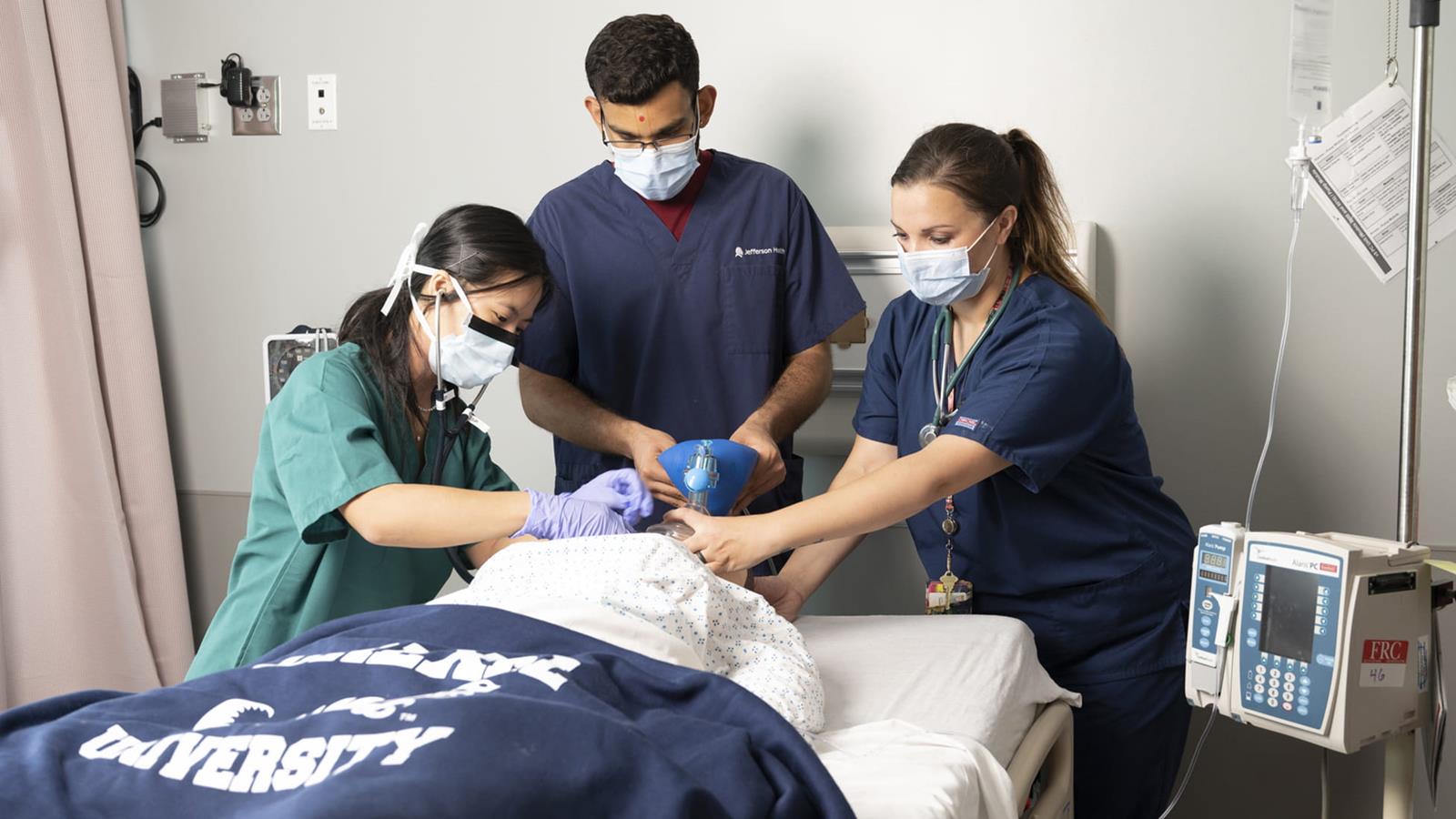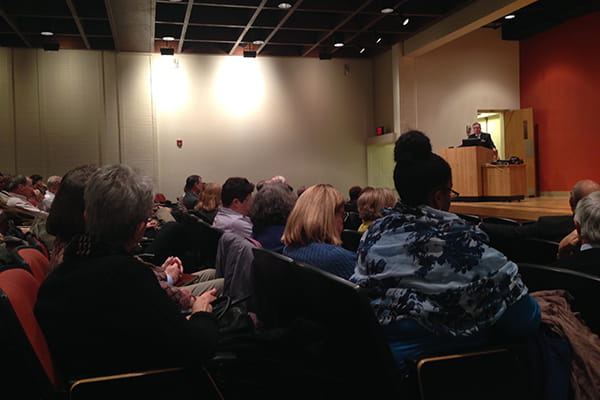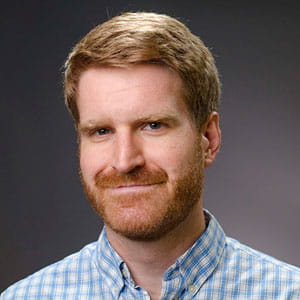Center City Campus Shouldn't Be Just a 'Branch,' Fry Says at Town Hall

- Drexel’s College of Nursing and Health Professions Receives $1 Million for Scholarships from the Bedford Falls Foundation – DAF to Address Nursing Workforce Shortage
- Laura Turner to Join Drexel University as Senior Vice President for Institutional Advancement
- When the World Changes, Drexel Changes With It
- U.S. Department of Education Provides Final Approval of Drexel and Salus Merger

Too often, President John Fry said last week, Drexel’s Center City Campus has been treated as a “branch,” something entirely separate from the University City Campus. And it’s time for that to end, he told an audience of Center City faculty and professional staff Wednesday.
“There should be no classes of citizenship at this University,” Fry said.
Speaking at the last in a series of strategic plan town hall meetings, Fry acknowledged that it would take some planning and some time, but he said he wanted the students, faculty and staff in Center City to have access to the same things those in University City do. And as development trends ultimately connect Center City and University City and the city’s true center moves westward, he predicted, the two campuses will one day be more connected.
“I view this as our campus,” Fry said. “Our campus is Philadelphia.” The Center City Campus’s separation and differences from University City were the subjects of several questions asked at the town hall, in areas ranging from public safety to the Drexel Central student service center.
Fry said that, though he could promise no specific time, there would at some point be an operation in Center City similar to University City’s Drexel Central, which brought together several different student-service offices in a one-stop shop. And in response to questions about public safety on the Center City Campus, including about pedestrian safety, he said he’d like to convene a group to examine the issue.
Early in his talk, Fry addressed one aspect of the campuses’ separation that will soon end: the operational “firewall” separating the College of Medicine from the University. He assured the audience that the upcoming merger, due to be completed next year, would not be accompanied by any job cuts.
“The reason for doing this is not to save money by eliminating jobs,” Fry said. “This is not a reduce-duplication type of effort. No one’s job is going to be lost as a result of taking down the firewall.” Rather, he said, the point is to create connections and collaborations and to leave behind a legal arrangement constructed for insurance reasons 12 years ago that’s no longer necessary. It will take time to work out details, he said, but it will make for a more unified University.
“I’m serious about this ‘One University’ thing,” Fry said. “This is not a slogan. This is the way to run our institution going forward.”
As he told a group at the Queen Lane Campus last month, Fry said he would also like the College of Medicine itself to be united in one spot, through the closing of Queen Lane and a consolidation in Center City. “In the end, this College of Medicine needs and wants and has to be together,” he said.
The University’s finances, a common topic in previous town halls, was again the subject of questions. Fry reiterated that the University’s balance sheets look quite healthy, though he said that was no reason not to be fiscally disciplined.
“It’s a very difficult time in higher education and health care right now in America,” Fry said, “and I don’t think any of us can take any of these results for granted.”
One subject on which Fry said he could not provide details was the ongoing talks between Drexel and Tenet Healthcare Corp., the owner of Hahnemann University Hospital, about the future of their relationship. He said he knew the subject was on the minds of faculty and staff, but to share details at this point in the process would amount to speculation.
“All I can tell you is that we are having a serious, and sustained, and collegial, and very productive set of conversations with Tenet,” Fry said, “and that’s not anything we’ve ever enjoyed over the years.”
The wide-ranging talk also touched on topics including efforts to increase diversity at the University; the recently completed fundraising campaign and upcoming planned campaigns focusing on student scholarships and endowed professorships; and the planned shift to responsibility center management, which will give deans more control over budgets and revenues.
Though this was his last town hall in the current cycle, Fry said he plans to continue operating in the spirit of collegiality, transparency and openness that the meetings have aimed to reflect.
“The more we talk, the better we will do,” he said.
Drexel News is produced by
University Marketing and Communications.
